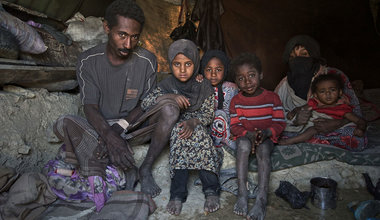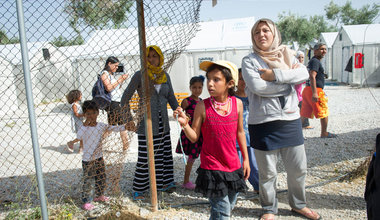Niger: After 4-day visit, senior UN aid official calls for greater global support for displaced
 Wrapping up a four-day mission in Niger, the United Nations Humanitarian Coordinator for Africa’s Sahel region has called on the international community to show increased support for the people of Diffa and the rest of the Lake Chad Basin who have been displaced from their homes amid the violence of Boko Haram’s insurgency.
Wrapping up a four-day mission in Niger, the United Nations Humanitarian Coordinator for Africa’s Sahel region has called on the international community to show increased support for the people of Diffa and the rest of the Lake Chad Basin who have been displaced from their homes amid the violence of Boko Haram’s insurgency.
“Despite difficult living conditions, lack of sustainable income and basic means of daily subsistence, thousands of families continue to care for those who have even less,” said the Assistant-Secretary-General and the Regional Humanitarian Coordinator for the Sahel, Toby Lanzer, in a press release issued by the UN Office for the Coordination of Humanitarian Affairs (OCHA).
“People in the Lake Chad region provide us an example of humanity that should be an inspiration for us all,” he added.
According to the Office of the UN High Commissioner for Refugees (UNHCR), the Boko Haram insurgency in northeast Nigeria has mutated into a vast regional humanitarian crisis involving its three Lake Chad Basin neighbours – Chad, Cameroon and Niger. Insecurity has driven more than 187,000 Nigerians across the border, but incursions by Boko Haram into the surrounding countries have also generated growing numbers of internally displaced people.
Mr. Lanzer visited the Diffa region of Niger, where violence at the hands of Boko Haram has pushed hundreds of thousands of people from their homes, disrupted trade and livelihoods and heightened malnutrition and food insecurity. He was accompanied by Niger’s Minister in charge of humanitarian action, Laouan Magagi.
Over 280,000 people have been forced from their homes in Nigeria and within the Diffa region of Niger due to Boko Haram raids and attacks on villages, the press release said. Two of every three displaced people have had to move more than once, each time testing their resilience and further deepening their suffering.
Furthermore, the press release said, entire villages have been emptied of their residents; a large proportion of fields have not been tilled; and, access to basic social services such as water, health and education has been further restricted. Some 400,000 people need emergency food assistance. Malnutrition is at an extremely high level, with the Global Acute Malnutrition (GAM) rate, at 17 per cent, exceeding the emergency threshold.
Humanitarian organizations have scaled up their operations during the lean season which stretches from June to September. Food assistance reached more than 65 per cent of the 400,000 people targeted, up from 41 per cent in May.
OCHA said, however, that insecurity and lack of funding are limiting humanitarian teams’ ability to reach the most in need. The humanitarian response in Diffa is only 38 per cent funded, with $28 million of $73 million secured. About 50 per cent of food needs for the rest of the year will not be covered if additional funding is not received.
“[Some] $44 million are needed to respond to an overwhelming situation and deep suffering,” the Humanitarian Coordinator in Niger, Fodé Ndiaye, said, citing an event to be held on 23 September in New York in the margins of the General Assembly.
He hoped that this event will mobilize the attention of the international community and pave the way to ending violence and misery across the region. “This requires creating youth and women’s employment, creating socio-economic opportunities, and strengthening social cohesion,” he said.
 ONU
ONU







